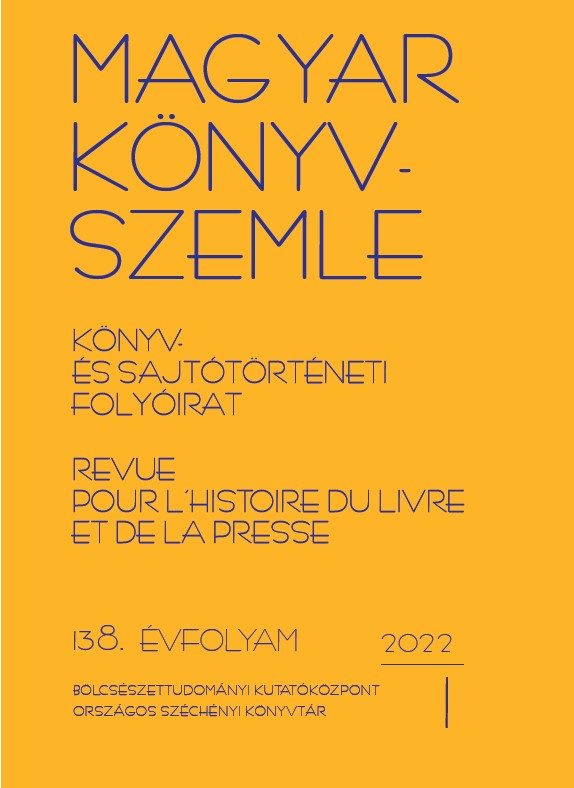Hungarian Text in Hebrew Letters
On Daniel Klesch’s Linguistic Theories and Poetic Experiments
Abstract
I publish two previously unpublished letters sent by Daniel Klesch in the summer of 1677 to Peter Lambeck, a confidant of Emperor Leopold I, the historian and scholar, who was the head of the imperial court library. In the paper accompanying the text edition, I examine in more detail the philosophical and poetological ramifications of the letters. The pastor of Spišská Nová Ves (Hung. Igló, Ger. Iglau) had already sent his letters from his exile in Germany, apparently with the aim of gaining favor with Emperor Leopold and the title of Comes Palatii Caesarei. The letters in question are not unknown to Hungarian literary history, but I have been able to clarify several unanswered questions about them and, most importantly, to identify the prints sent with the letters. The pastor also reports on several of his poetic experiments: writing Hungarian text in Hebrew letters and transcribing certain ancient poetic forms into German, following the example of Pope Urban VIII. We only knew of these attempts, but the sources themselves were not available until now. I examine in detail Klesch’s now discovered Latin and German Alcaic and Pindaric odes, and compare them with contemporary German poetic practice. Placing Klesch’s statements and texts in this dimension, it is clear that our author was breaking new ground, since he was not joining an already existing German-language practice, but was seeking to give voice to the Latin metrics of Pope Urban VIII and, through them, to the ancient tradition in German. Klesch also sent Lambeck a Hungarian poem in one of his prints, transcribed in Hebrew letters. This is a curiosity in Hungarian cultural history, which cannot be found in Hungarian literature of the 17th century, and I will therefore deal with this text and its linguistic background in more detail.



